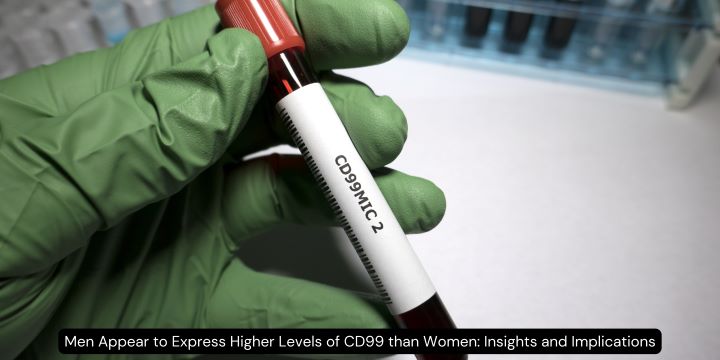CD99 is a glycoprotein that plays a significant role in various biological processes, including cell adhesion, apoptosis, and immune response. Its expression is particularly noteworthy in certain cancers and in the functioning of the immune system. Recent studies have indicated a potential gender difference in CD99 expression, with men appearing to express higher levels of this protein than women. Understanding these differences could have profound implications for medical research and treatment.
Exploring the Function of CD99
CD99, also known as MIC2, is a cell surface glycoprotein that is implicated in a wide array of cellular functions. This protein is involved in processes such as the migration of immune cells, the formation of blood vessels, and the development of the thymus and other organs. It is also a critical player in apoptosis, where it helps regulate the programmed death of cells, an essential function for maintaining cellular health and homeostasis.
In addition to its normal physiological roles, CD99 has gained attention for its involvement in various diseases, including cancers. For instance, CD99 is highly expressed in Ewing sarcoma, a type of bone cancer that primarily affects children and young adults. Its expression in cancer cells is often associated with poor prognosis, making it a target for potential therapeutic interventions.
Gender Differences in CD99 Expression
Emerging research suggests that men exhibit higher levels of CD99 expression compared to women. This finding is particularly intriguing as it opens up new avenues for understanding how gender differences influence disease processes and responses to treatment.
- Cancer Research and CD99 Expression: In cancer biology, studies have noted that male patients with certain types of cancers exhibit higher CD99 levels than their female counterparts. For example, in Ewing sarcoma, male patients often present with more aggressive forms of the disease, which may correlate with their higher CD99 expression. This differential expression could be linked to the hormonal environment, with androgens potentially upregulating CD99 expression in men.
- Immune Response Variability: CD99 is involved in the regulation of immune cell movement and function. Gender differences in immune responses are well-documented, with women generally exhibiting stronger immune responses compared to men. The higher CD99 expression in men could partially explain why men tend to have different susceptibilities to certain infections and autoimmune diseases. For instance, the migration of T-cells, a critical component of the immune system, might be influenced by CD99 levels, potentially altering the immune response in a gender-specific manner.
- Hormonal Influence on CD99: Hormonal differences between men and women might contribute to the observed variations in CD99 expression. Estrogens and androgens have significant effects on gene expression and cellular function. It is plausible that androgens could enhance CD99 expression in male tissues, aligning with the observed higher levels of CD99 in men.
Clinical Implications of Differential CD99 Expression
Understanding the gender differences in CD99 expression can have several clinical implications:
- Personalized Medicine: Recognizing that men express higher levels of CD99 could lead to more personalized approaches in treating diseases where CD99 is a factor. For example, therapies targeting CD99 might be tailored differently for men and women, optimizing effectiveness and reducing side effects.
- Cancer Prognosis and Treatment: In cancers like Ewing sarcoma, where CD99 expression is significant, knowing the differential expression patterns can help in prognostic assessments and in designing gender-specific treatment protocols. This can improve outcomes and provide more targeted therapeutic strategies.
- Immune-Related Disorders: For autoimmune diseases and infections, understanding how CD99 expression affects immune responses in men and women can guide the development of treatments that consider these gender-based biological differences. This can enhance the efficacy of immunotherapies and other treatments.
Future Directions in Research
The discovery that men appear to express higher levels of CD99 than women warrants further investigation to elucidate the underlying mechanisms and implications. Future research could focus on:
- Mechanistic Studies: Investigating the cellular and molecular pathways that regulate CD99 expression in a gender-specific manner, particularly how hormones influence these processes.
- Clinical Trials: Designing clinical trials to explore how differential CD99 expression impacts the effectiveness of therapies in men and women. This could include evaluating gender-specific responses to treatments targeting CD99 in cancers and other diseases.
- Broader Health Impacts: Expanding research to understand how CD99 expression differences affect overall health and disease susceptibility in men and women across various conditions.
In conclusion, the evidence that men exhibit higher levels of CD99 than women opens up new perspectives in understanding gender differences in health and disease. It underscores the importance of considering gender in medical research and treatment strategies. As the field of personalized medicine continues to evolve, such insights will be crucial in providing tailored and effective healthcare solutions for all.



